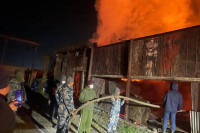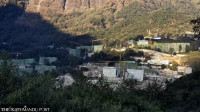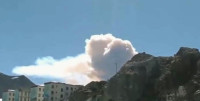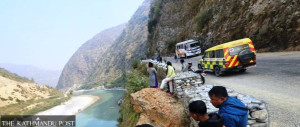Bagmati Province
Farmers in Chitwan’s Madi turn to fishery to avoid wildlife incursions
The government declared Madi a fish block under the Prime Minister Agriculture Modernisation Project.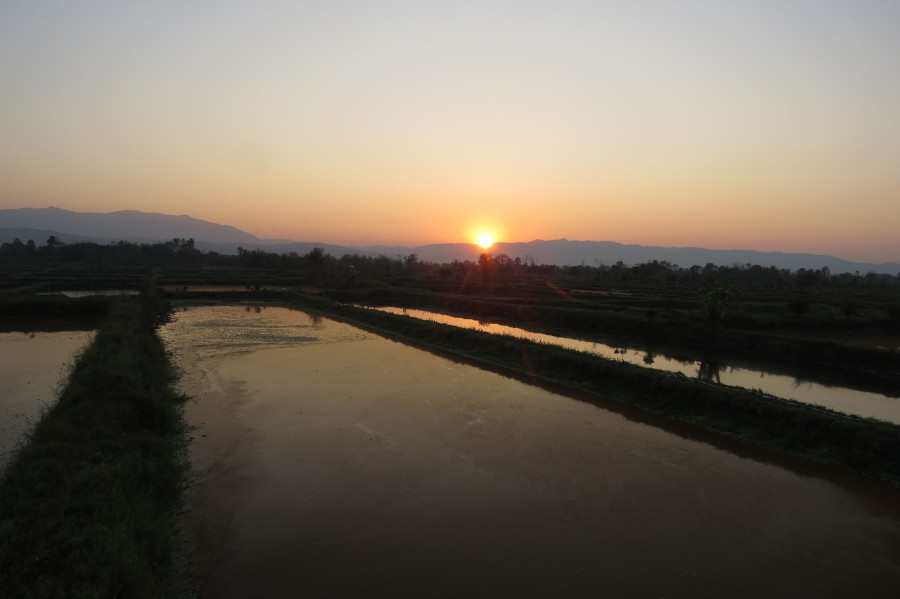
Ramesh Kumar Paudel
The local residents of Madi in Chitwan have turned to fish farming in the past few years to minimise incidents of human-wildlife conflict in the area.
Madi, which is surrounded by the Chitwan National Park on three sides, is one of the areas most affected by human-wildlife conflict in the country. Wildlife from the park enter the settlements and destroy crops planted in hectares of land and attack people every year. Now, the villagers have switched to fish farming from paddy and lentil cultivation. They say their occupational switch has been paying off well.
“We used to grow paddy and lentils in the past which would attract wild animals, mostly rhinos and elephants. Now that we have turned to fish farming, we don’t have to worry about animals entering our fields,” said Sommaya Pun Magar of Shivadwar in Madi Municipality. According to her, fish farming has given her better economic benefits than traditional paddy cultivation. She started fish farming by digging several ponds in her 10 kattha land some six years ago. “We could hardly grow 35 muris of paddy and earned around Rs 30,000. Now we can earn at least Rs 50,000 a year. And we don’t have to worry about wild animals damaging our crops anymore.”
“As many as 135 farmers are affiliated with the Madi Fish Production and Distribution Cooperatives. The trend of fish farming started in the area in 2008. The farmers are currently keeping fish in around 700 hectares of land,” said Kamal Bahadur Bhujel of Gopalnagar, who is also the chairman of the cooperatives. According to him, around 60 quintals of fish can be harvested in a hectare of land per year.
Bhujel started fish farming in 18 kathas of land after he retired from Nepal Army in 2008. “Our family has been living in this area for the past 55 years. The settlement is beside the national park forest. Elephants, rhinos and other wild animals from the forest come to a nearby stream to quench their thirst and destroy our crops,” said Bhujel.
According to Bhujel, Nama Prasad Ghimire is the pioneer farmer in Gopalnagar who started fish farming some 30 years ago. Almost all the villagers are now involved in fish farming. Saroj Sah of Madi has initiated a large scale fish farming by taking 16 bighas of land on rent. “I have invested around Rs 10 million in fish farming, as it has a high return. I am hoping to get a return of my investment within a few years,” said Sah.
Conservationists say fish farming has significantly reduced incidents of human-animal conflict in the area and this is a positive move in conservation.
“The villagers do not have to worry about wild animals damaging their crops anymore. The fish ponds also work as a barrier for the wildlife from entering the settlements,” said Ramprit Yadav, the former chief conservation officer of the Chitwan National Park.
According to the Rewa Buffer Zone Consumers’ Committee in Madi, complaints regarding the damage of crops by the wildlife have significantly lessened in recent years. “Around 200 complaints had been filed at the committee in the past asking for compensation for their crops damaged by wild animals. Less than 10 such complaints have been filed in recent years,” said Shiva Bahadur Karki, the chairman of the consumers’ committee.
The government has declared Madi a fish block under the Prime Minister Agriculture Modernisation Project. “There are around 1,100 fish ponds in Madi now. The government should bring favourable plans and policies to encourage fish farming in the area,” said Netra Ale, the former coordinator of the block.




 10.12°C Kathmandu
10.12°C Kathmandu1.jpg)



